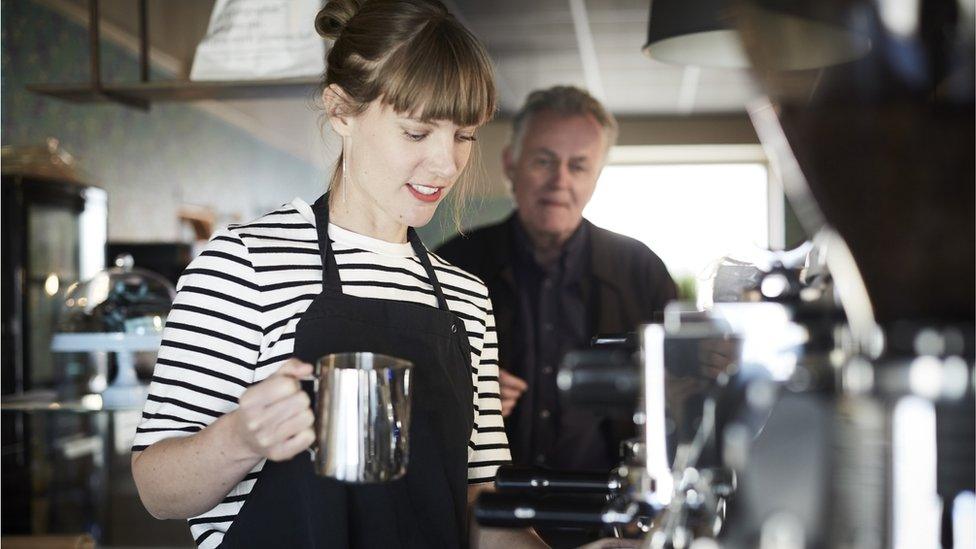Cost of living: 'I only put heating on when my grandkids visit'
- Published
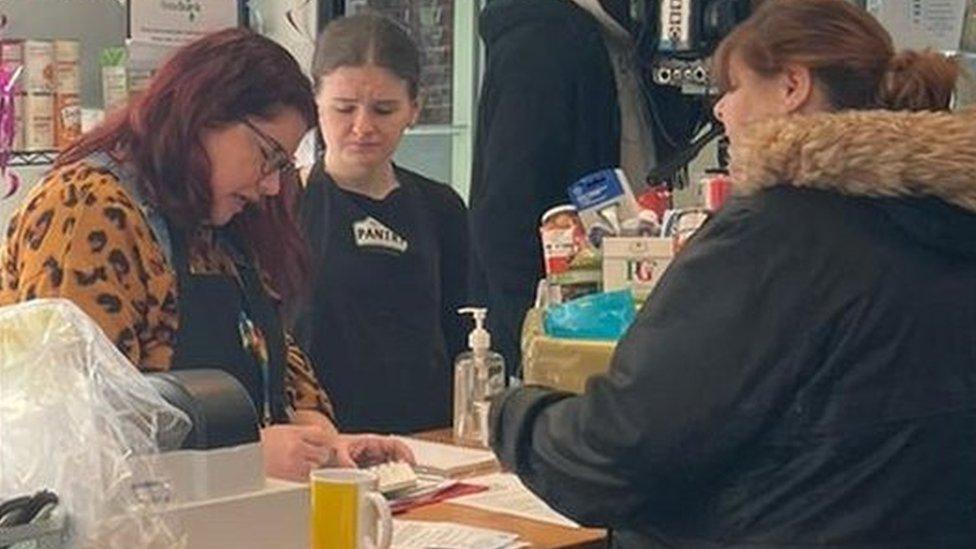
Judith Criddle uses a volunteer-run community food store in Cardiff to do her weekly shopping
Money has been so tight for grandmother Judith Criddle, she only ever puts her heating on when her six grandchildren visit - despite the cold weather.
Even then, Judith can only afford to put it on for an hour so she wraps her grandchildren in a blanket on the sofa with hot water bottles to keep warm.
"To them it's a movie night, cuddling in to nan - but to me, I'm doing it to save the money," said the 51-year-old.
Judith is one of the millions affected by the UK's cost of living crisis.
Prices are rising at the fastest rate in more than 10 years and one think tank has warned it could get worse with predictions that higher energy bills, stagnant wages and tax rises could leave households with an extra £1,200-a-year hit to their incomes.
Judith, who is on universal credit, said she was trying to cut back on using energy as much as she can, but "if it goes up any more I can't afford to live".
A report, external from the Resolution Foundation also warned a rise in the energy price cap - where energy bills could more than double - and National Insurance contributions in April means families are facing a "year of the squeeze" in 2022.
Even now Judith can't afford a haircut or to have an occasional social drink with friends in Cardiff.
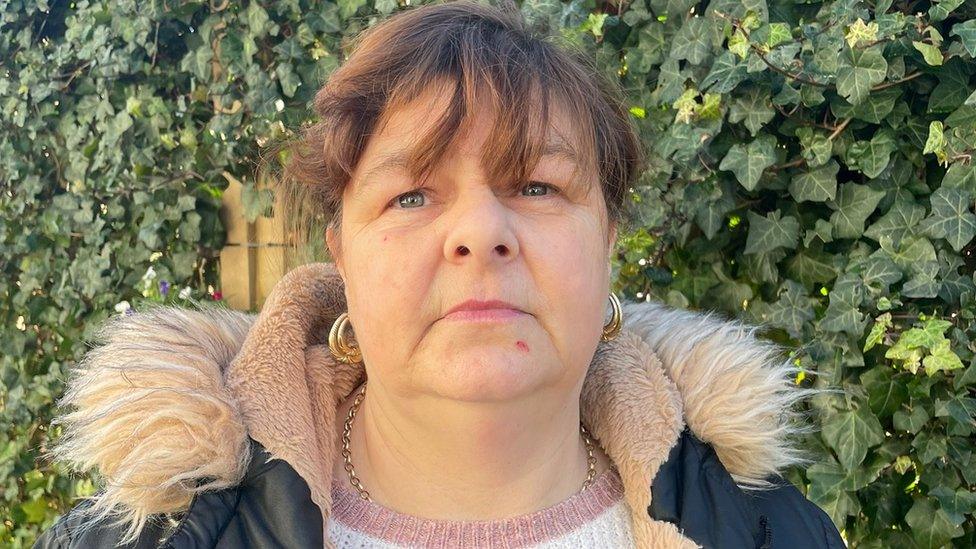
Judith says she can't afford a hair cut and worries every months about how to pay her bills
She is one of the four in 10 families in Wales living below the poverty line, according to poverty campaigners Bevan Foundation.
So while Judith's grandchildren think their movie night is a bit of fun with their nan, the actual reason is far from that.
"I'll put the heating on, say for an hour, to take the chill off," she said. "But then I'll put blankets on because I couldn't afford to have it on all the time.
"I'm worried about the month ahead, never mind the year."
Judith does her weekly shopping at a community food store, run by a local charity, in the Caerau area of Cardiff.
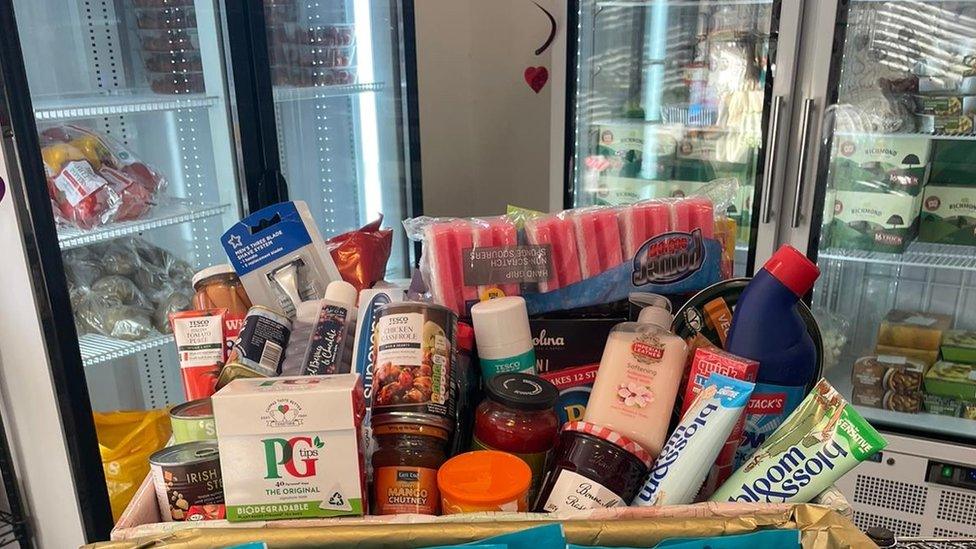
The community food store where Judith shops sells a food parcel with £20 worth of food for £5
Your Local Pantry - which helps families in Ely and Caerau, parts of which are among Wales' most deprived areas - relies on donations of groceries and food schemes to keep prices down.
A weekly shop costs a fiver but its 132 members get around four times that price in food.
Alex Withey has been volunteering at the Pantry and, like Judith, the 52-year-old receives universal credit.
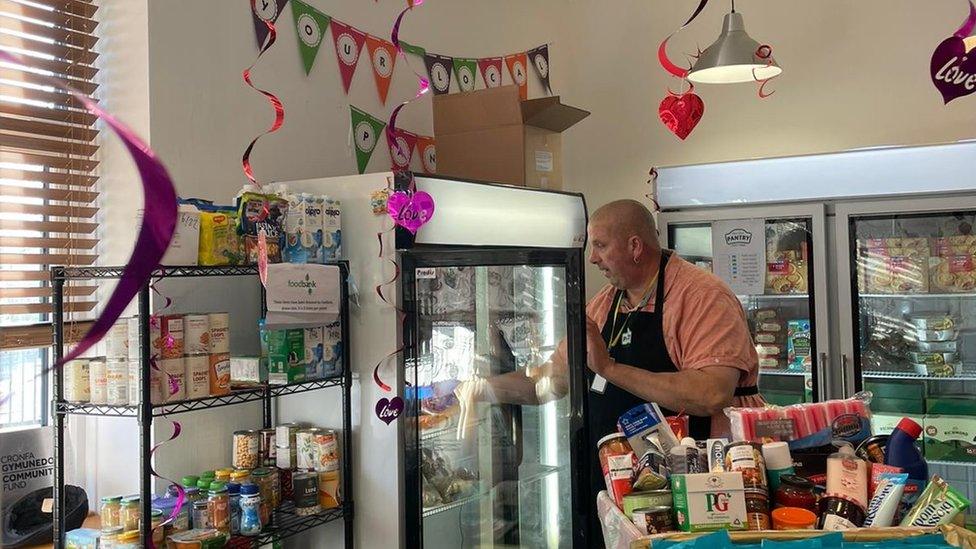
The Pantry in Cardiff is run by a local poverty charity Action Caerau and Ely
"This is 2022 and people are having to decide whether to put their heating on or have a meal," he said.
"Every month I'm thinking how much to pay for food, how much to pay for fuel. As it goes up, obviously it's going to have to be less for food and more for fuel.
"That's wrong. It's always the poor that get hit first."
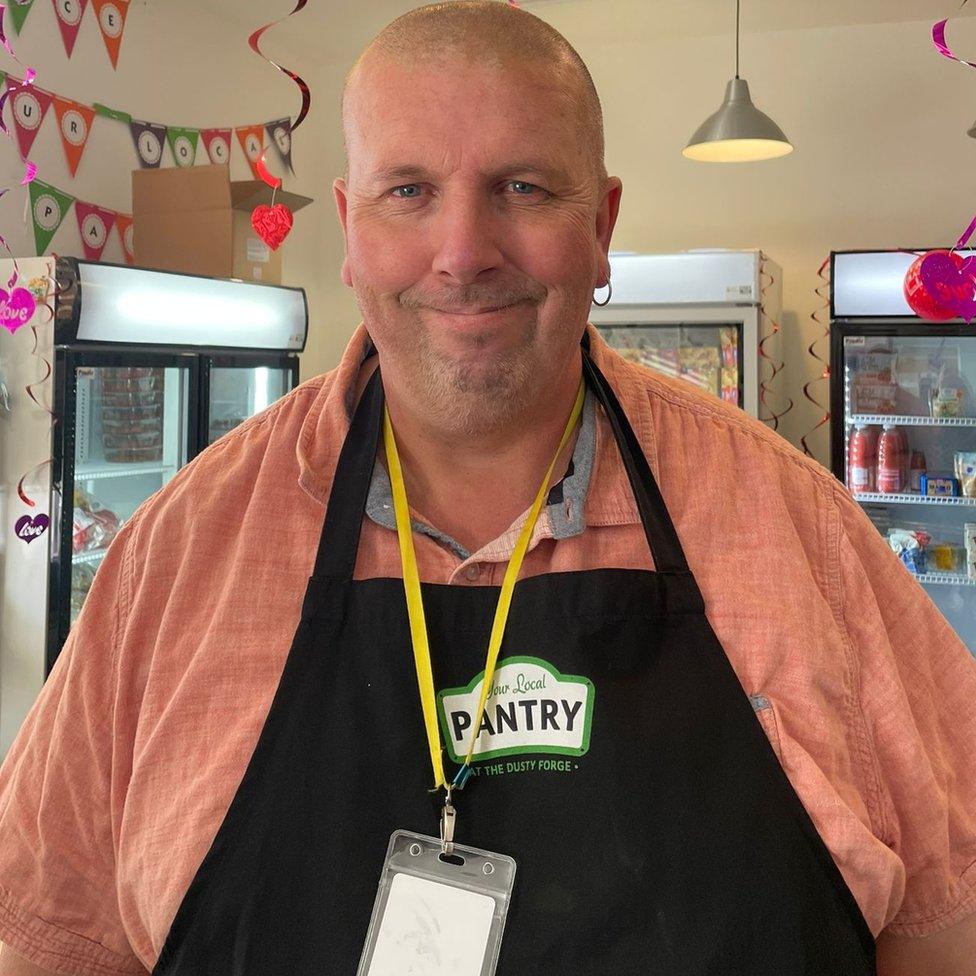
Alex says he has £100 to spend on bills and he can't afford both food and electric or gas

Inequality campaigners say people's health and living standards will suffer because of the cost of living rise, with the Bevan Foundation estimating a third of Welsh families are already cutting their energy use while a quarter are cutting back on food.
The Bevan Foundation also claims the impact of the Covid pandemic is pushing more households - about 40,000 - into poverty.
"Around a quarter of families in Wales were living in poverty before the pandemic," said Dr Steffan Evans, the foundation's head of policy.
"A lot of them were having to make these difficult decisions anyway, but more people have been affected."
Families are bracing themselves to pay more for their energy as industry experts predict those that were paying £850 on average last year will see their bills rise to more than £1,700.
Fuel poverty charity National Energy Action is calling on the UK government to consider "meaningful" targeted financial support for the most vulnerable customers.
Rising costs resulting in "nerve-racking" times for families on a budget
"That could include increasing the warm home discount, it could mean extending the winter fuel payments to those who might not otherwise be eligible for that, or it could also mean helping clear energy debts," said Ben Saltmarsh, of National Energy Action.
"The key thing is we need targeted support to those who need it the most, and urgently. People simply will not be able to cope."
The Welsh government said it was aware households in Wales were under "unprecedented financial pressure" due to the cost of living "crisis" and the UK government's "cruel" decision to end the Universal Credit uplift.
The Treasury said it had helped provide more than £4.2bn of support to families per year, on top of other support for living standards.
"We know people are facing pressure with the cost of living - which is why we're taking billions of pounds worth of decisive action to help," said a UK government spokesperson.
"Our support includes reducing the universal credit taper - a tax cut worth over £2bn - increasing the minimum wage and supporting households with their bills... as well as freezing alcohol and fuel duty."

MONUMENTAL MRS CAMPBELL: Wales' first black head teacher celebrated with iconic statue
MOTHERS, MISSILES AND THE AMERICAN PRESIDENT: The story of Greenham told like never before

- Published12 January 2022
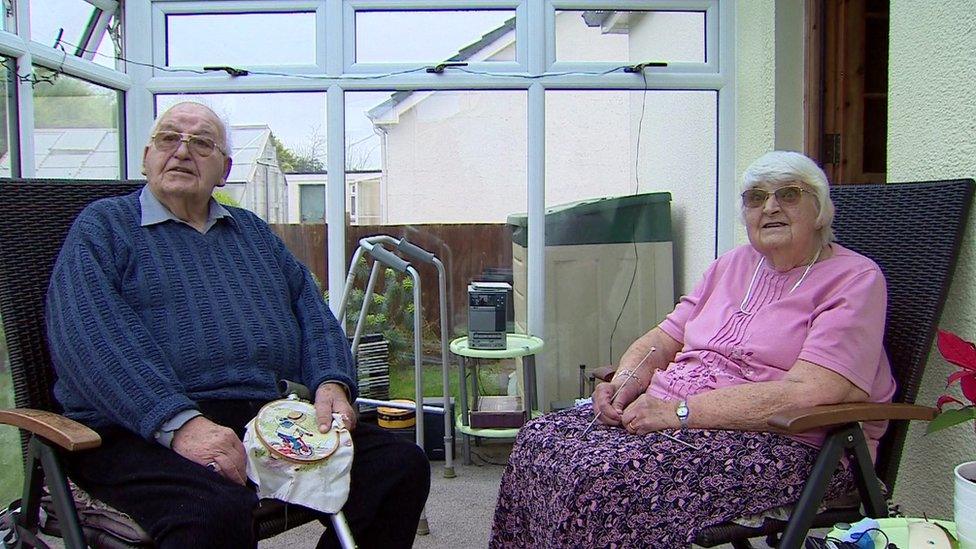
- Published12 January 2022

- Published5 January 2022
- Published29 December 2021

- Published27 December 2021
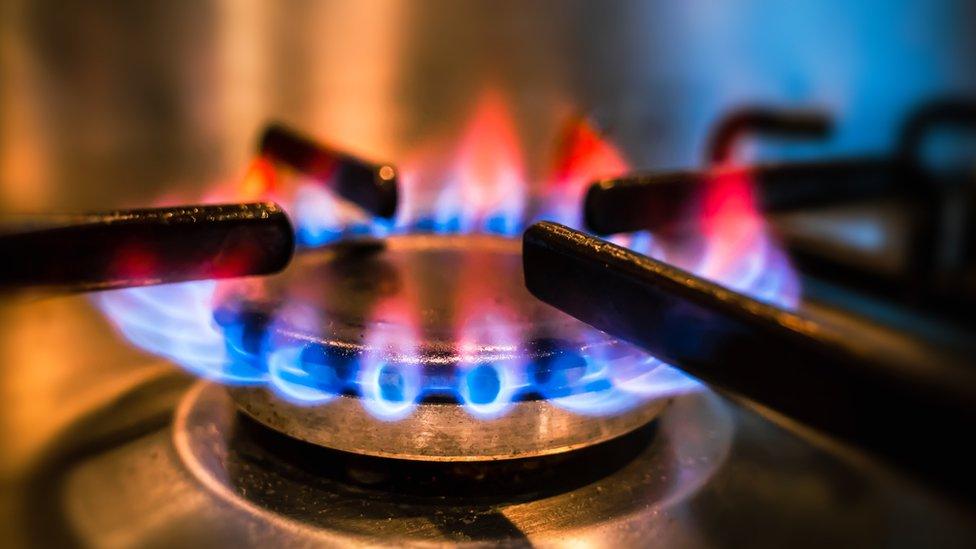
- Published15 December 2021
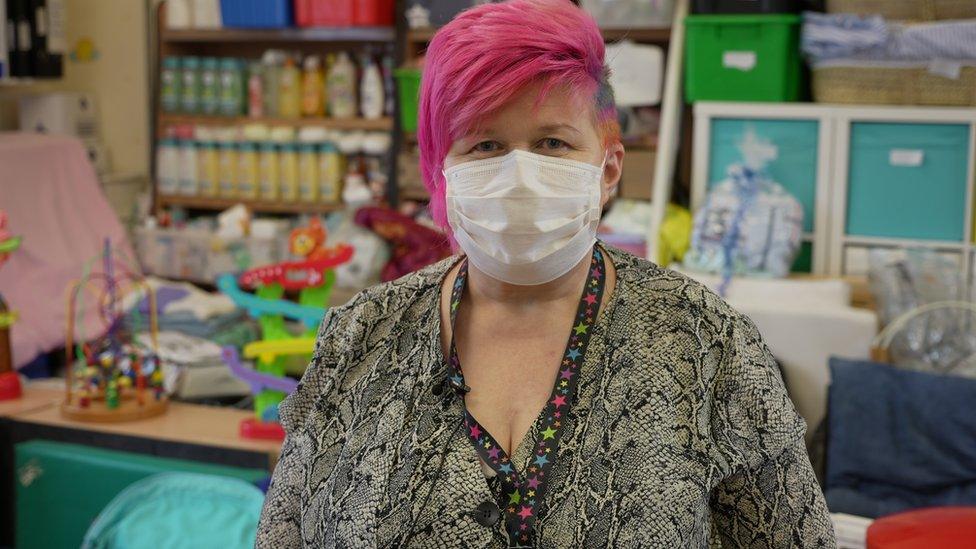
- Published15 December 2021

- Published6 November 2022
